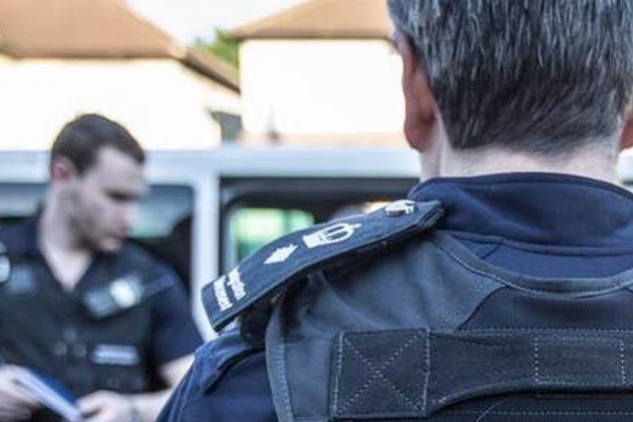
Peter Wieltschnig
Policy and Networks Officer
Conflicted interests: the incompatibility of immigration enforcement and safeguarding
Peter Wieltschnig
Policy and Networks Officer
On Wednesday 16 February, the Government published the responses of the bodies subject to recommendations and actions produced by three independent police watchdogs in the ‘Safe to Share?’ report. This report was the result of the 2018 Southall Black Sisters and Liberty super-complaint on policing and immigration which set out a series of concerns about the impact of data-sharing between the police and immigration enforcement on migrant victims and witnesses of crime. The ‘Safe to Share?’ report concluded that data-sharing between the police and immigration enforcement was significantly harming victims of crime, making them less likely to report crime, so reducing authorities’ ability to prosecute perpetrators.
The recommendations outlined in the report called for an immediate end to such data-sharing and recommended a review of data-sharing schemes, paving the way for secure reporting processes which ensure that victims can safely report crime without fear that this will result in their data being shared with immigration enforcement.
Safeguarding and immigration enforcement
In their response to the recommendations, the Home Office argued that the ‘safeguarding’ function of immigration enforcement is ‘an essential part in removing the perpetrator’s ability to use coercive control over victims around their immigration status.’ This claim fails to consider the fact that the Home Office regularly engages in immigration proceedings against victims with insecure immigration status. This concept of the ‘safeguarding’ function of immigration enforcement was explicitly rejected by the independent police watchdogs when considering domestic abuse cases, as well as by community organisations, making it clear that data-sharing does not constitute safeguarding and actually creates a safeguarding risk by preventing victims from seeking support. Forcing migrant victims and witnesses to engage with the Home Office, without regard for their legitimate mistrust, and failing to prevent immigration enforcement action even where safeguarding support is sought risks putting individuals at serious risk of harm. To provide such support, victims require access to independently run safe spaces to access specialist, independent, trauma-informed, and rights-based advice as well as the provision of legal advocates to liaise on their behalf with the Home Office with regard to options to regularise their status. Immigration enforcement officers are not immigration law specialists and would not normally advise on immigration matters.
Immigration enforcement does not and cannot provide a safeguarding role. Where the primary purpose is to enforce immigration law, using detention and deportation to do so, it does not provide a safeguarding function and instead drives people away from reporting crime or receiving assistance from authorities, so creating a vulnerability. It is essential that the Home Office embeds the lived experience of victims and witnesses of crime into their approach, particularly where fear of removal from the UK is the main factor preventing people from reporting crime to the police.[1]
A conflict of interest
There is a fundamental conflict of interest between immigration enforcement and safeguarding – a conflict that cannot be resolved by a simple rebranding exercise. The Home Office refers to ‘erroneous perceptions and misconceptions held by migrant victims in relation to resolving their immigration status.’ The perceptions of victims and witnesses of crime of immigration enforcement, far from erroneous or misconceived, are rather reflective of valid concerns and empirical evidence. These have already been acknowledged by the Home Office and captured in numerous statements and guidance.[2] The continued insistence on data-sharing and counterproductive ‘safeguarding’ functions thus demonstrates a naivety, or at worst, wilful ignorance. These measures will do nothing but prevent an effective response to issues such as human trafficking and domestic abuse, and discourage victims and witnesses of crime from coming forward.[3]
Immigration Enforcement Migrant Victims Protocol
In late 2021, the Home Office proposed an Immigration Enforcement Migrant Victims Protocol which it claims will prevent immigration enforcement action against victims whilst criminal investigations and proceedings are ongoing, and while victims are being supported. Organisations working with victims have voiced strong disagreement with the Government’s response as set out in this joint letter. The letter rejects the Immigration Enforcement Victims Protocol, explaining that this protocol in no way replaces or addresses the need for secure reporting and that there remains a conflict of interest as long as Immigration Enforcement is involved in receiving reports from and supporting victims of crime.
Secure reporting – a workable solution
The Home Office’s response towards the very real concerns raised in the super-complaint fails to offer real accountability towards or options for victims and witnesses of crime. The path forward must be informed by the lived experience of victims, and with their best interests at heart. Establishing secure reporting pathways and procedures is not an idealistic position, it is realistic solution, with examples of successful implementation across the globe. This guide for police and labour inspectors working with migrants, published earlier this month by FLEX and the Latin American Women’s Rights Service (LAWRS), outlines some of these and shows how the introduction of safe reporting mechanisms can help prevent and address abuse and exploitation.
[1] McIlwaine, Cathy, Lucila Granada and Illary Valenzuela-Oblitas. 2019. The Right to be Believed: Migrant women facing Violence against Women and Girls (VAWG) in the ‘hostile environment’ in London. London:King’s College London and Latin American Women’s Rights Service.
[2] e.g., Home Office, (2021) ‘Guidance – Review of data sharing: migrant victims and witnesses of crime,’ 15 December 2021, para. 20; Home Office (2014). Review of the National Referral Mechanism for victims of human trafficking. para. 4.2.9.
[3] McIlwaine, Cathy, Lucila Granada and Illary Valenzuela-Oblitas. 2019. The Right to be Believed: Migrant women facing Violence against Women and Girls (VAWG) in the ‘hostile environment’ in London. London:King’s College London and Latin American Women’s Rights Service.
